Illuminate the Darkness
“It’s the closest you can ever get to the deep sea.” – Claire Nouvian, curator of The Deep
Only a few of us will ever get to see the weird and wonderful world deep under the sea with our own eyes. For the rest of us, the deep sea is as unknown as outer space. ArtScience Museum’s newest exhibition, The Deep, brings these deep-sea creatures to our shores for a fascinating glimpse of the biodiversity that is inexplicably able to survive at such depths.
I had the opportunity to preview the exhibition and I was amazed by the treasures the exhibition has to offer. See for yourself! Here are 10 unbelievably strange creatures you can meet at The Deep:
1. The Creep – Giant Isopod
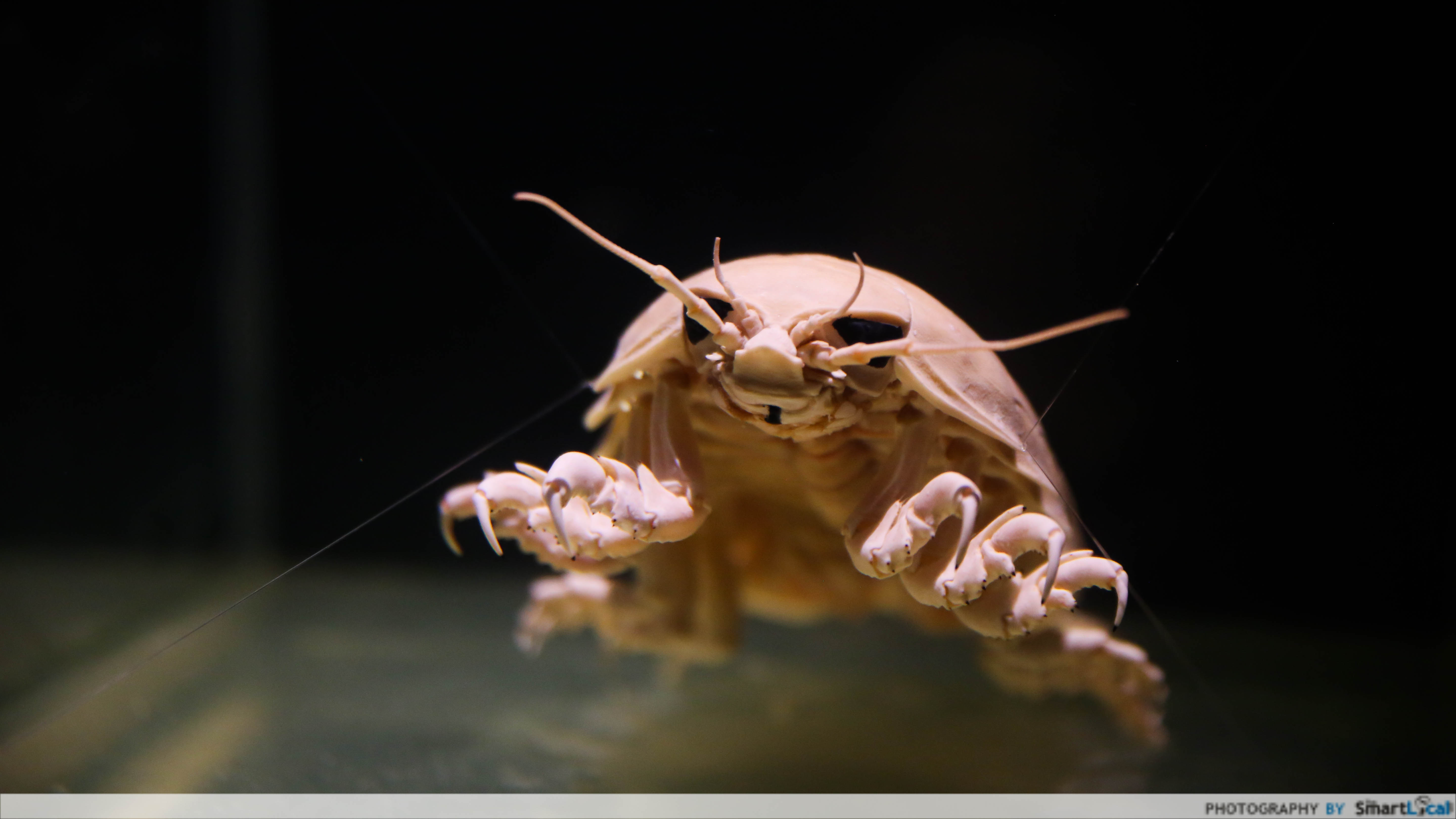
We start with this giant isopod, which has the honour of being the largest of its kind. Despite its name, giant isopods have an average length of 19-36 cm. Nothing to fear here. Interestingly, although it lives more than 100m below the sea, it’s a cousin to the woodlouse. 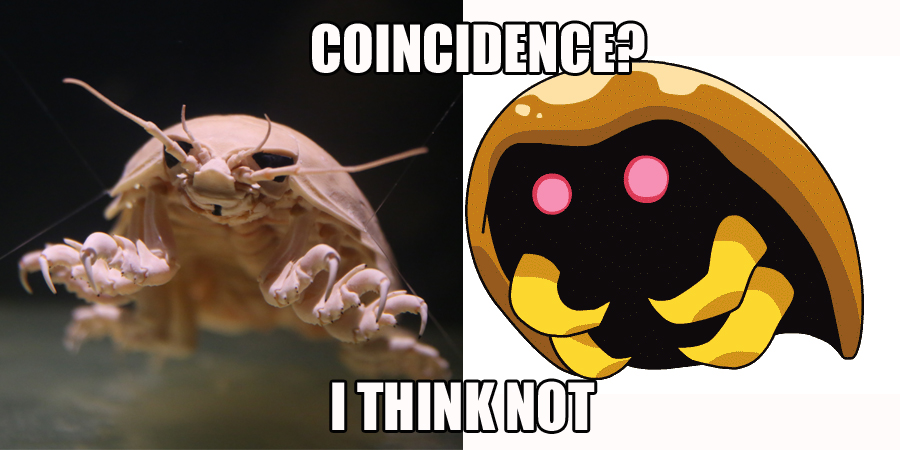
It also bears a startling resemblance to a Kabuto!
2. The Unicorn Gone Wrong – Goblin Shark
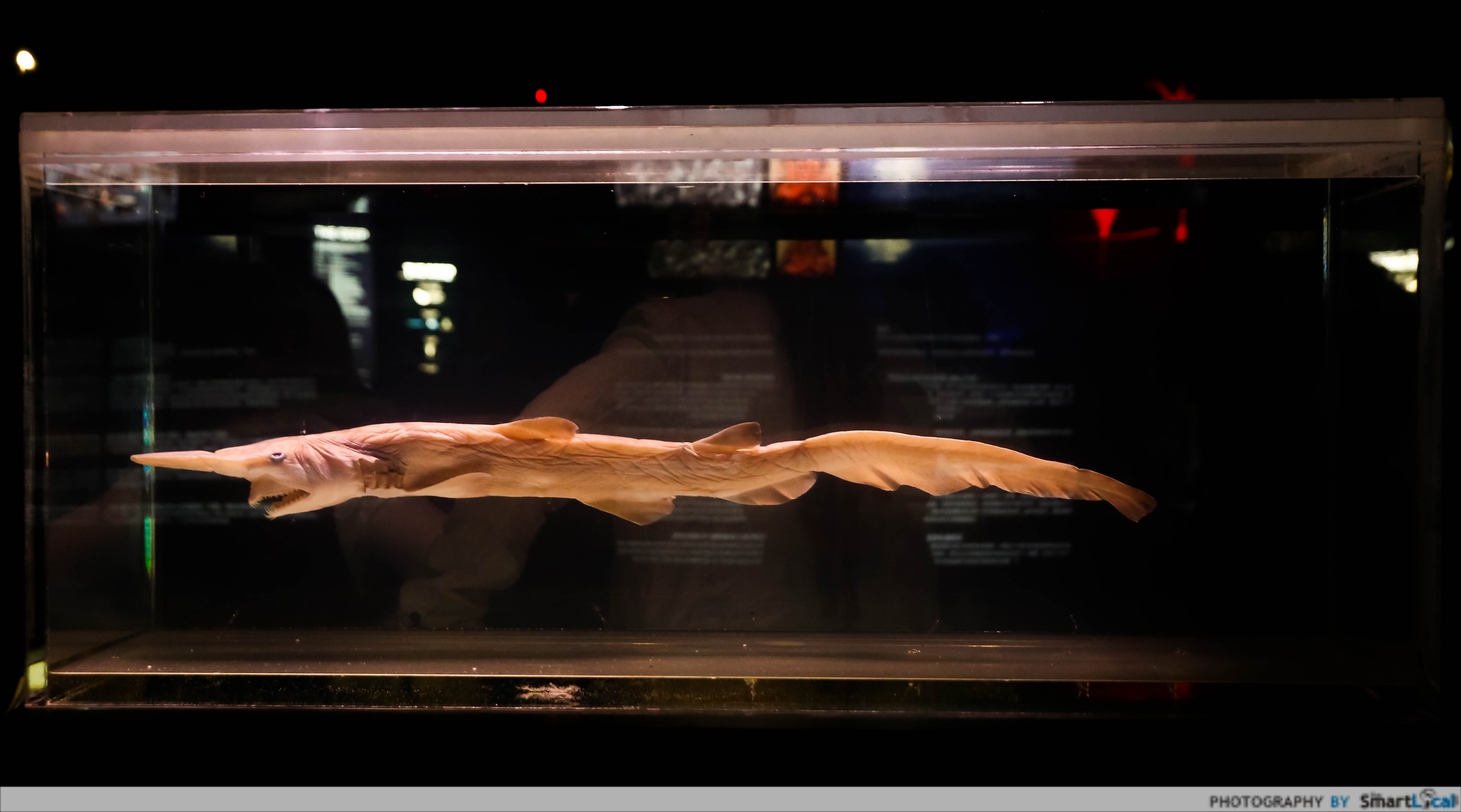
Goblin sharks look like misshapen ocean-dwelling unicorns. But that ‘horn’ protruding out of its forehead isn’t used to stab its prey, it senses electric fields produced by them. This is evolution at its finest. We should celebrate the goblin shark’s awesomeness during Shark Week.
Compared to the other species on display, goblin sharks are relatively easy to find, without going too far into the deep. What’s cool is how they’ve preserved the shark. When you visit the exhibition, take some time to appreciate the efforts of the taxidermists, Allan and Christopher Gottini, in presenting these amazing creatures. Each specimen is suspended in a tank filled with resin by delicate fishing lines. It’s science, but it’s also a work of art!
3. The Murderer in the Dark – Murray’s Abyssal Anglerfish
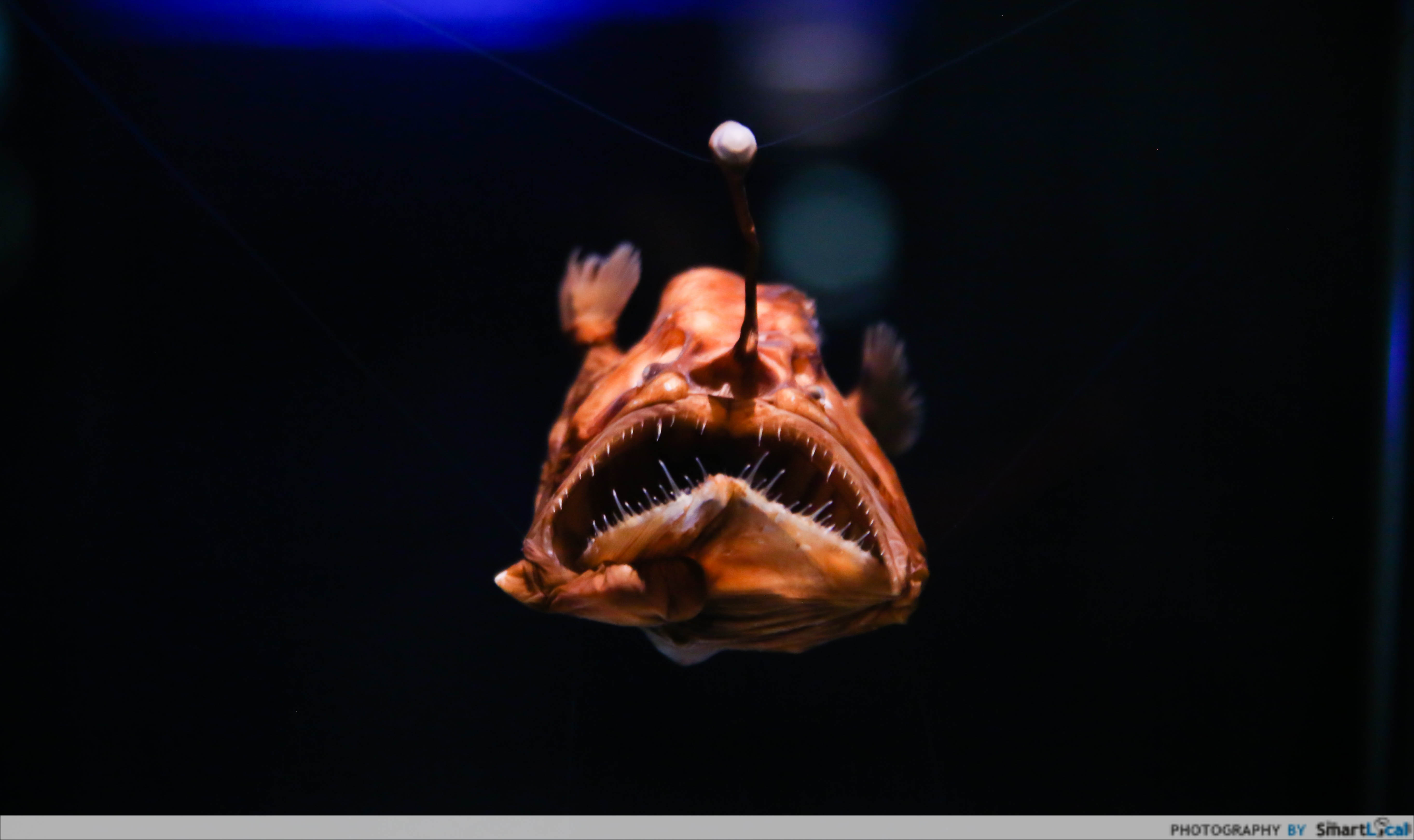
Think about it: the deep sea is so dark that a steadily moving light looks super suspicious. How can the fish be dumb enough to approach this light? On our guided tour, we found out the truth.
Fish aren’t spoilt for choice in the deep sea – they either eat other fish, or they eat the food that sinks down from the surface. The anglerfish eats other fish by luring them in with its glowing ‘antenna’, which is actually the anglerfish’s collection of bioluminescent bacteria. Deep-sea creatures identify their food by looking out for glowing bacteria, which latch on organic matter. Except that sometimes, it’s a trap! So smart.
4. The Overly-Attached Boyfriend – Krøyer’s Deep Sea Anglerfish
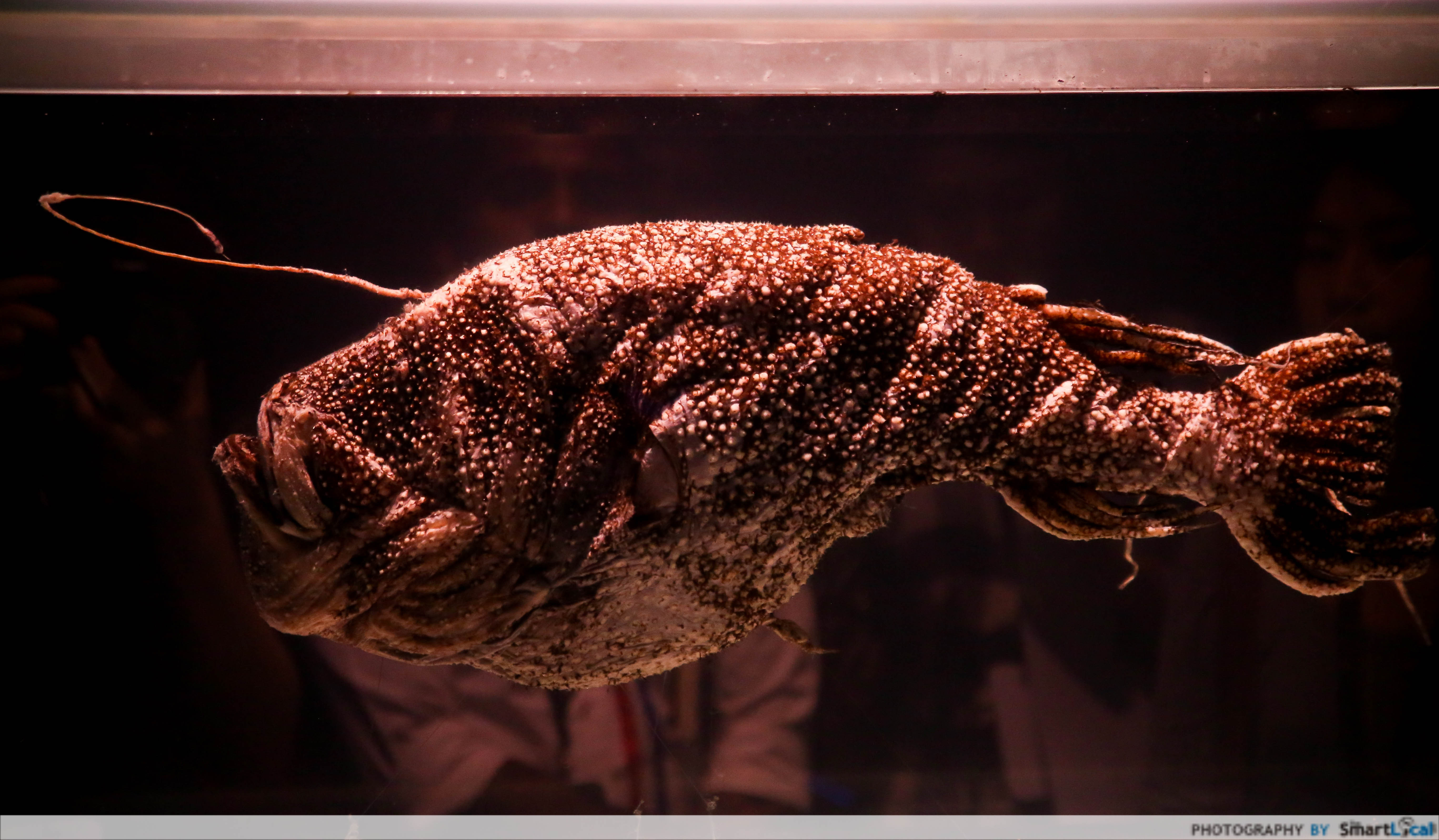
The previous anglerfish has nothing on this one. It’s huge for an anglerfish – females can reach 1.2m, while the males are puny in comparison (more on that later). It’s a good thing these creatures lurk at depths between 400m to 2000m – they’re a sight for sore eyes.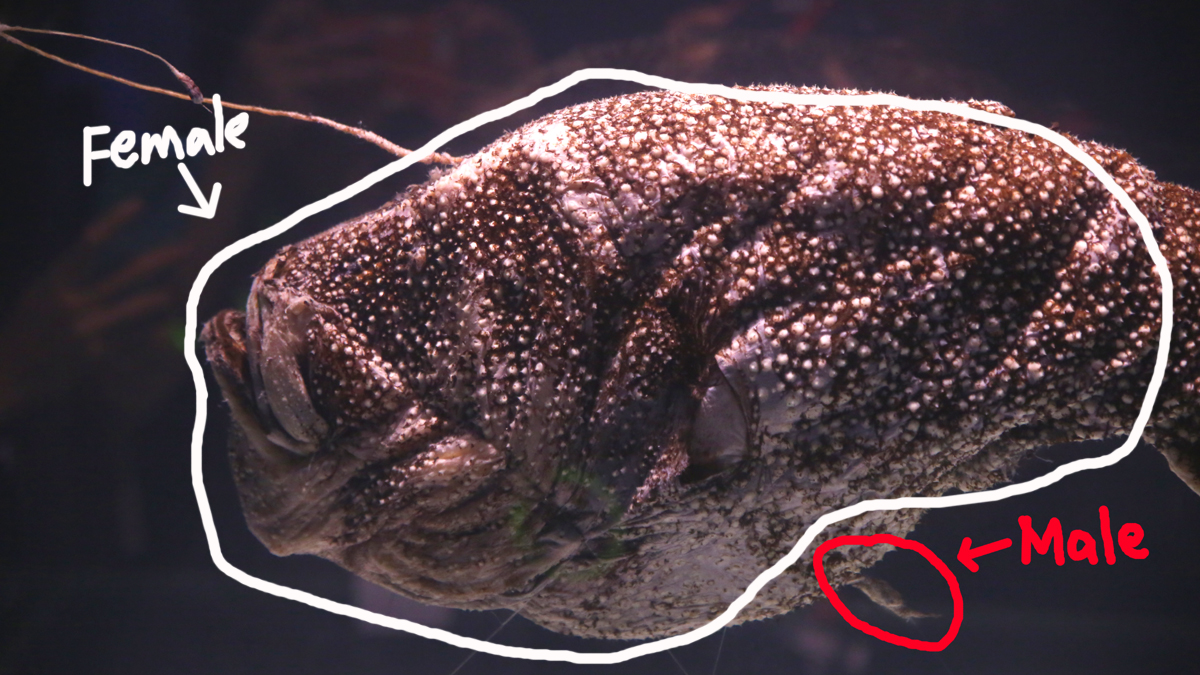
Have I mentioned how creepy parasitic male anglerfish are? Once it finds a female, it latches onto the female and digests itself until it fuses its body with the female’s. At the end of this terrifying mating ritual, all that’s left of the male anglerfish is its gonads (anglerfish reproductive organs). A male anglerfish is essentially the annoying stalker you can’t shake off.
5. The Vampire Squid (From Hell)
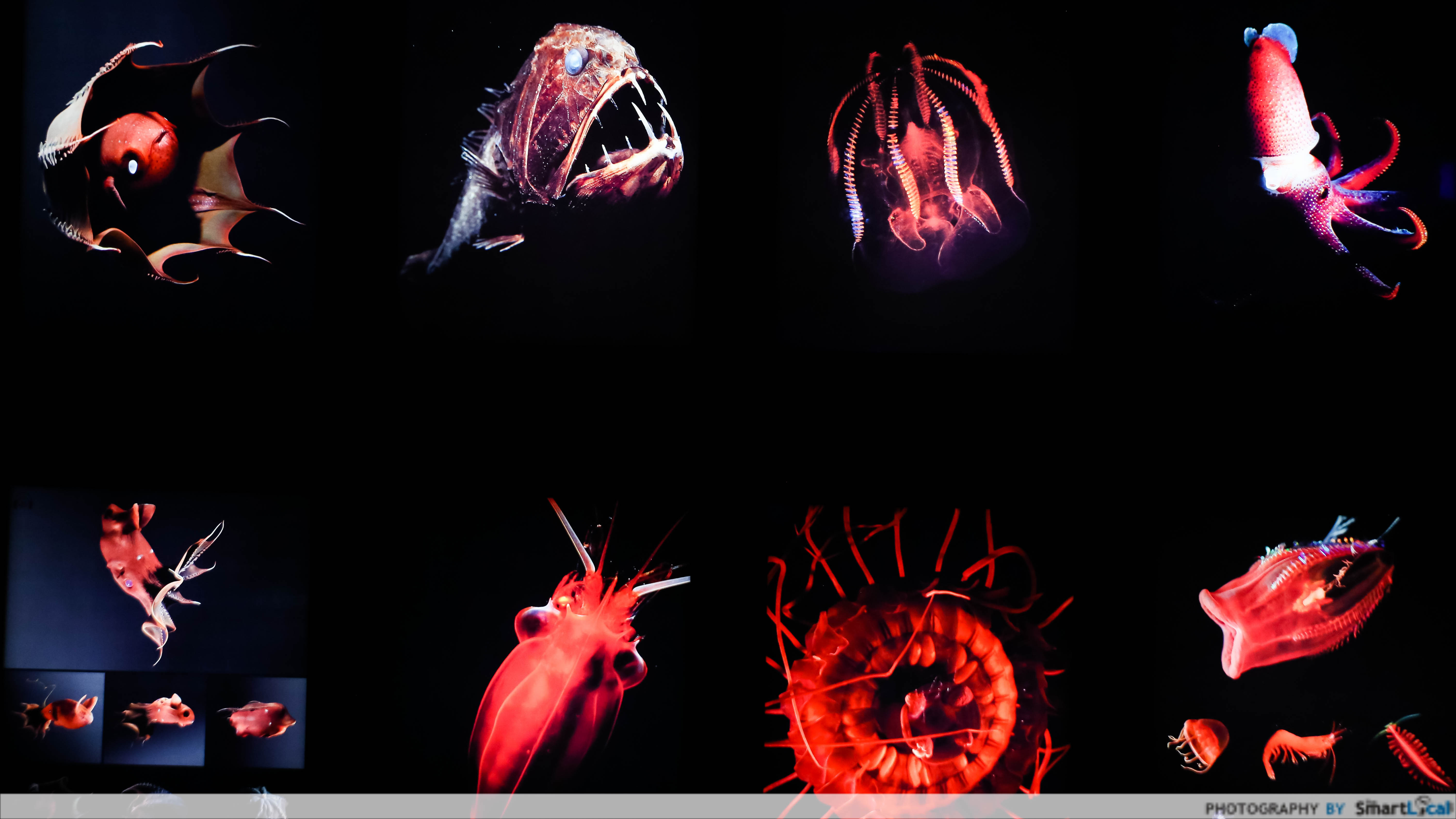
Apart from preserved specimens, The Deep features a series of stunning photographs of deep-sea creatures. This series features some of the animals that live between 600 and 1000 metres under the sea and sport a vibrant red hue. This is rare because most deep sea creatures emit blue or green bioluminescence.
Meet the vampire squid (top left), which is 1. not a vampire and 2. not a squid. It represents cephalopods, the ancestors of squids and octopuses before their evolutionary paths diverged.
6. The BFFs – Anemone with Hermit Crab
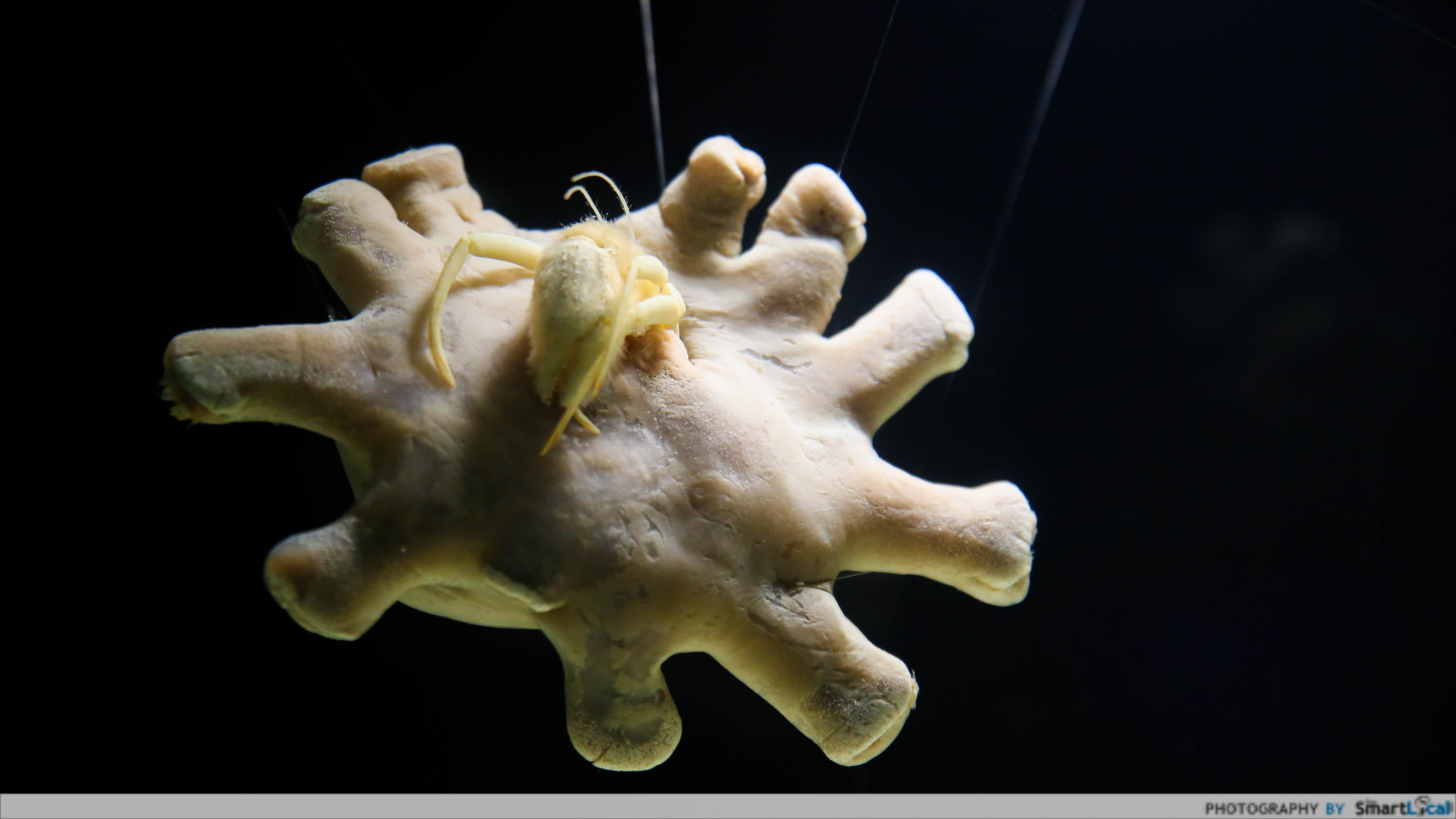
Nobody knows why, but hermit crabs and anemones have this special bond. They’re always found together! We’re glad that hermit crabs are less hermit-like than their name implies. While we know that in the animal world, relationships are forged for the sake of finding more food, we’re hoping that these animals just enjoy each other’s company.
7. The Skin and Bones – Spiky Oreo
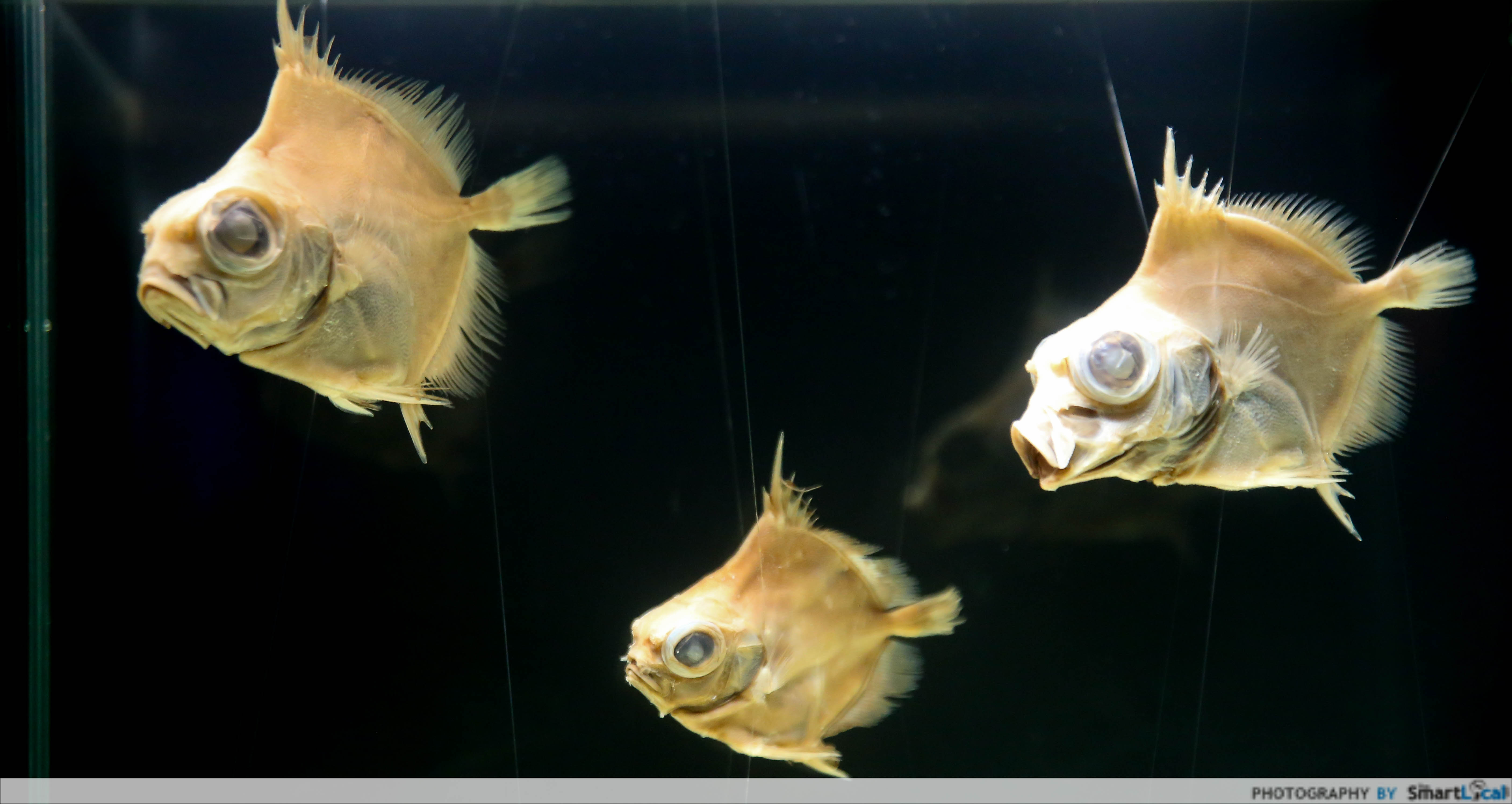
Unlike its cute name, this fish isn’t very attractive in person. It looks less otherworldly than the others on this list, but you shouldn’t dismiss Spiky Oreos because they have the ability to live for hundreds of years.
Unfortunately, its existence is being threatened by overfishing. Soon, we might have oreos on land but none left in the sea ):
8. The Underbite – Viperfish
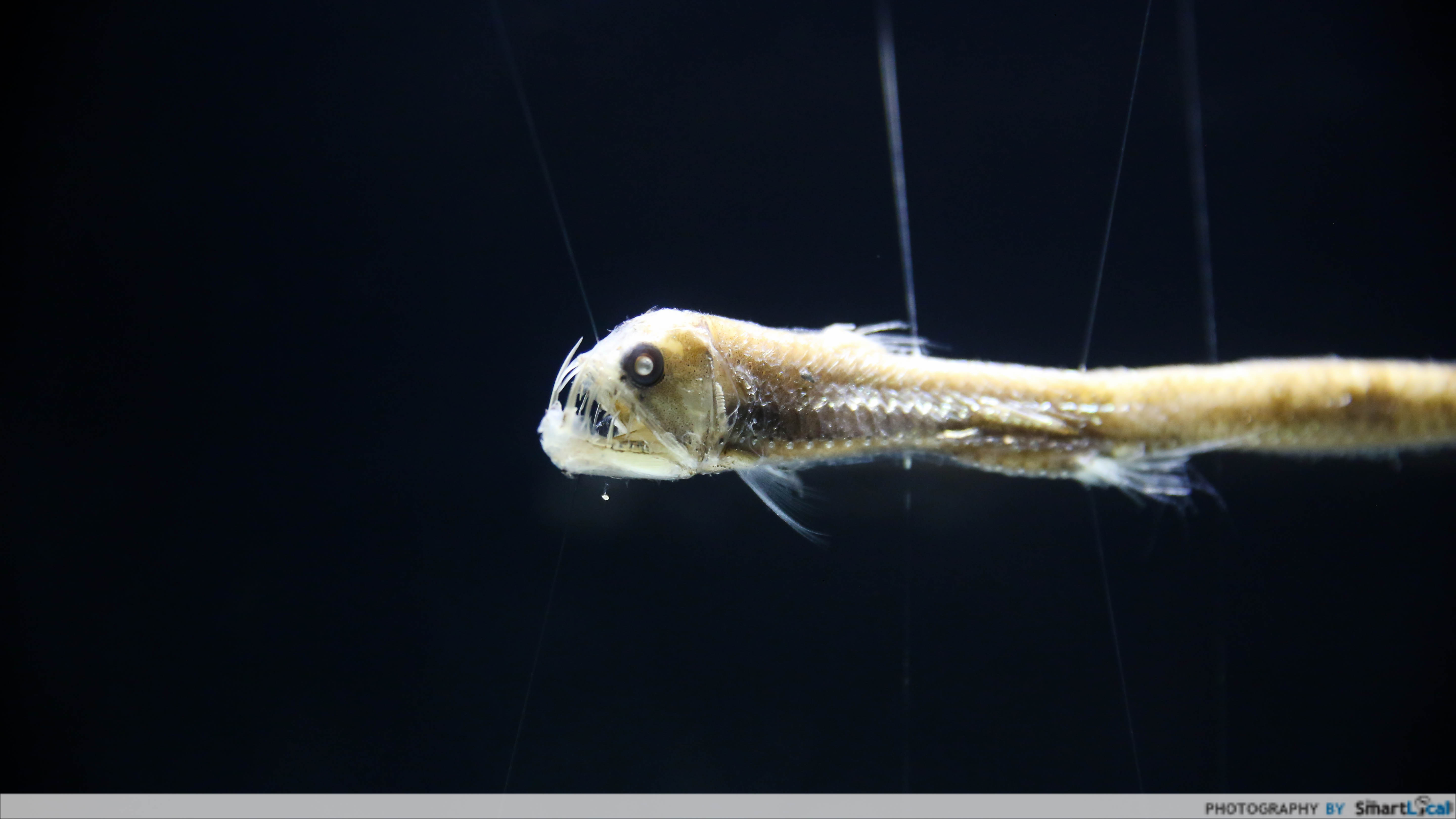
Due to some natural dental mishap, the viperfish has a small mouth and enormous teeth. Closing its mouth would mean certain death because its teeth would pierce through its head. Now that’s a dumb way to die.
9. The Duck Face – Bony Skull Toadfish
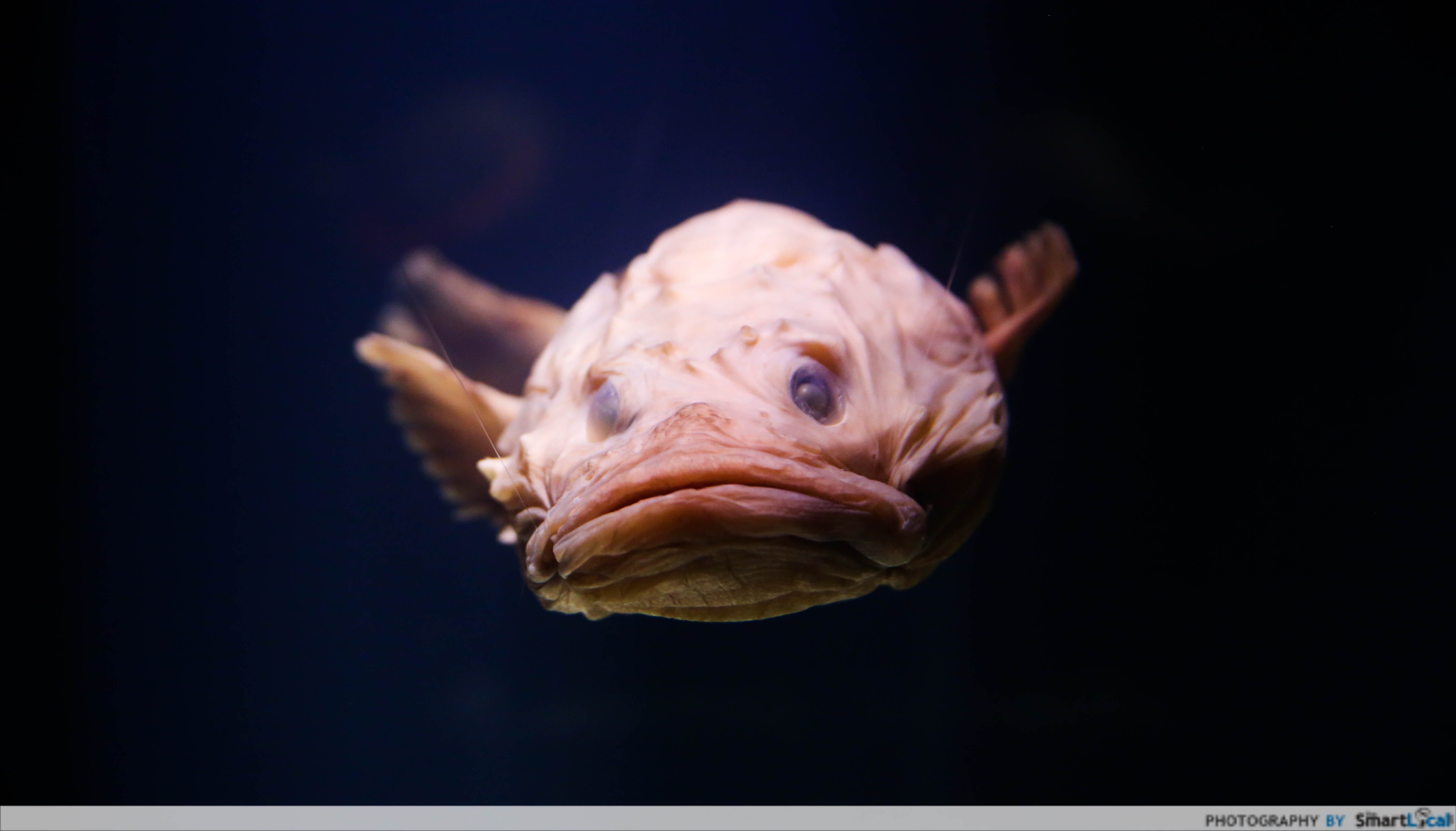
This toadfish looks like a teenager who took on the Kylie Jenner challenge and failed. Other than its comical appearance, scientists don’t actually know very much about it. It was discovered not too long ago in 1989, but they’re guessing it lurks on the seafloor, waiting to snap up unsuspecting prey.
10. The Invisible Shrimp – Cystisoma sp.
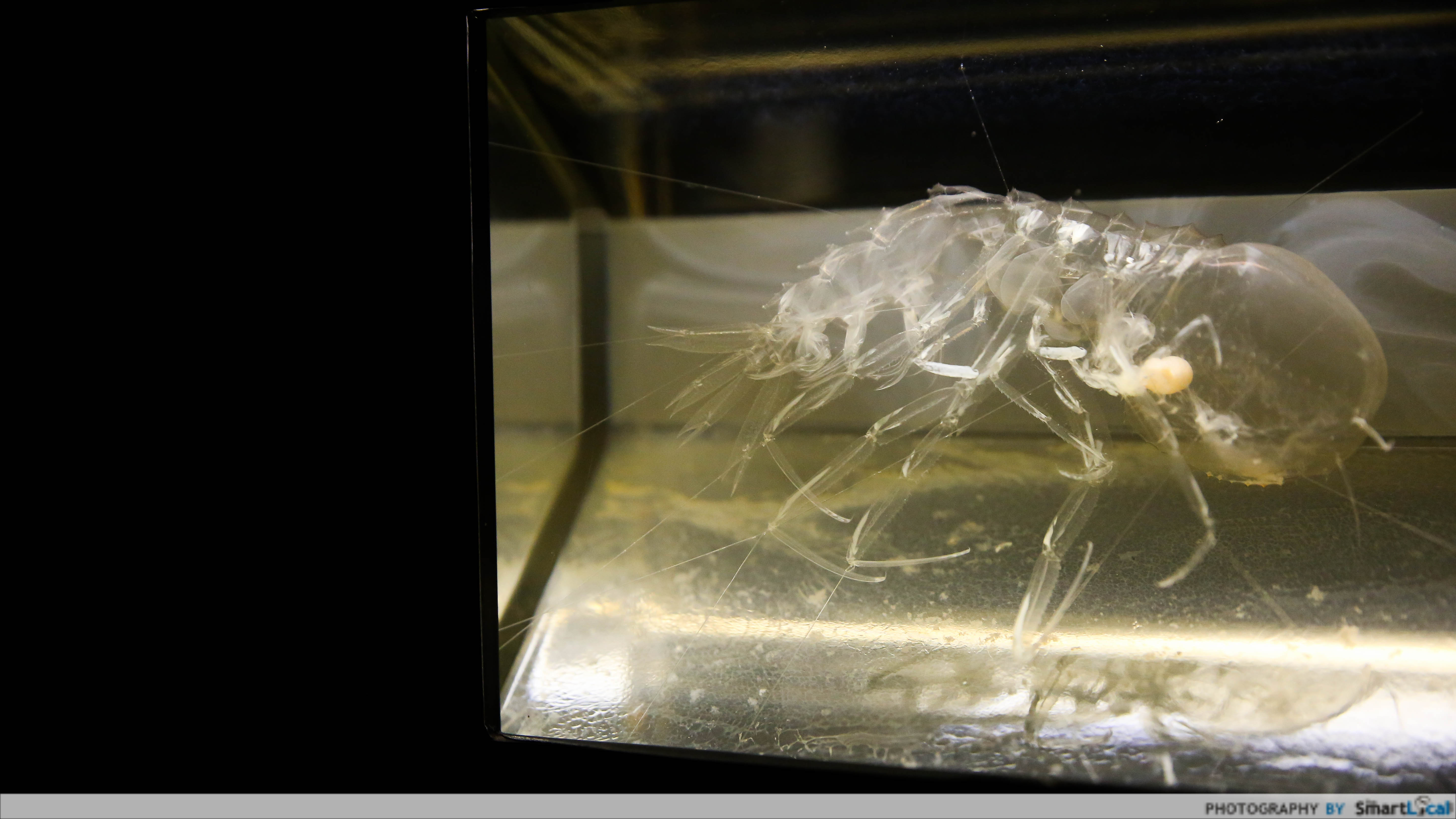
The picture does not do the specimen justice, and you’ll just have to see it for yourself. It looks jelly-like, but in reality, it has a transparent exoskeleton. Even its eyes are transparent! This is the closest you can get to an animal with the power to turn invisible. We assume it’s a fantastic skill for evading predators.
About The Deep
The Deep is showing at the ArtScience Museum from 6 June 2015 – November 2015.
Venue: ArtScience Museum at Marina Bay Sands
Address: 6 Bayfront Ave, Singapore 018974
Opening Hours: 10am – 7pm daily
Ticketing Details:
- Local Adults: $11
- Local Children: $7
- Local Senior Citizens: $9
- Adults: $14
- Children: $8
- Senior Citizens: $11.80
Get Up Close and Personal
“Life under the sea is better than anything they got up there.” – Sebastian the crab. 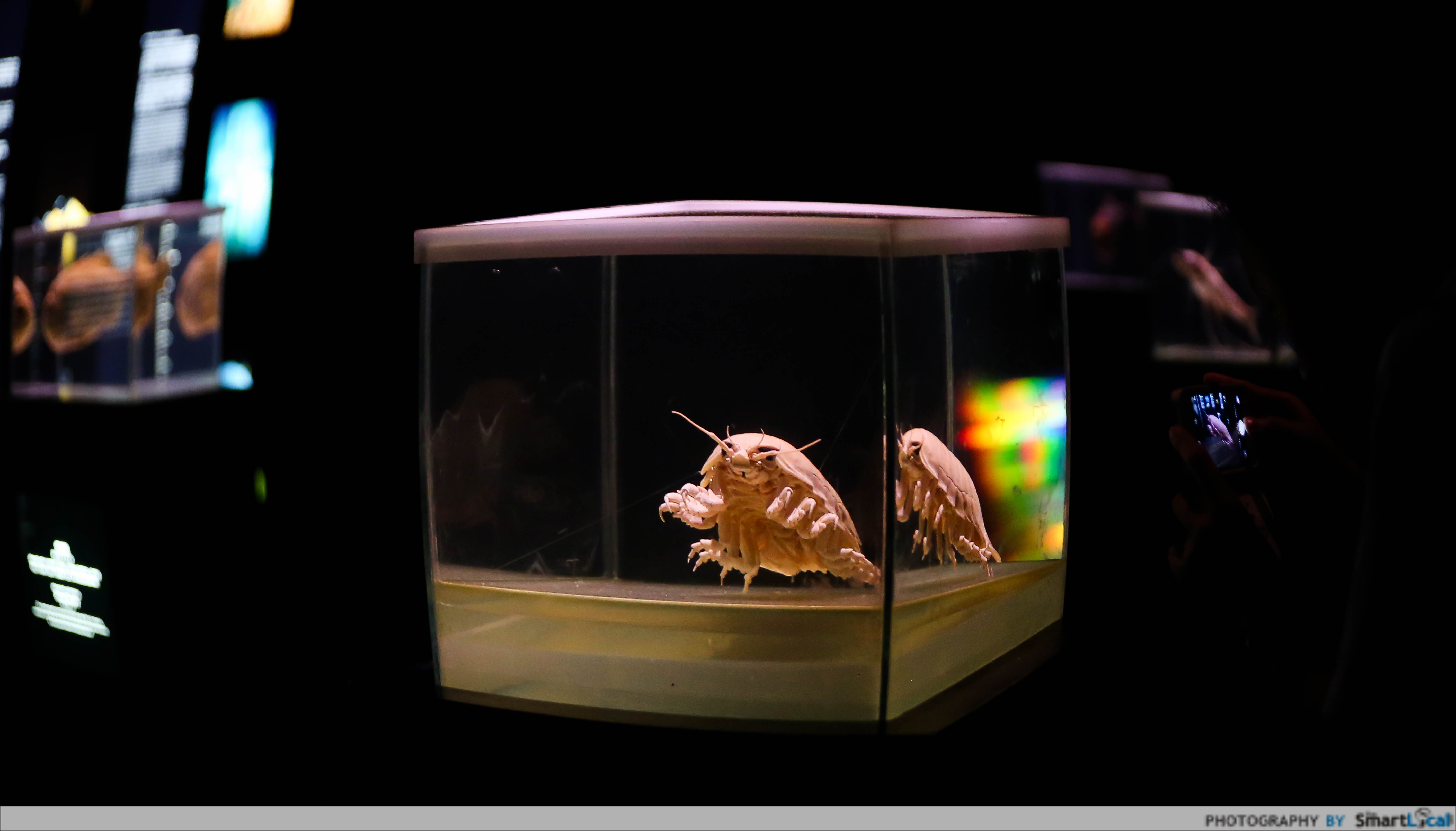
It’s a feast for your eyes – stunning macro photographs, mesmerising videos of bioluminescent creatures and over 40 immaculately preserved specimens that roam the mysterious abyss.
I found the exhibit fascinating because every animal featured is so strange and different from anything we see on land. It’s a pity that sea jellies and other invertebrates cannot be preserved because I would love to see them in person. Visit the weird and wonderful creatures of The Deep. You’ll be amazed.
This post was brought to you by the ArtScience Museum.